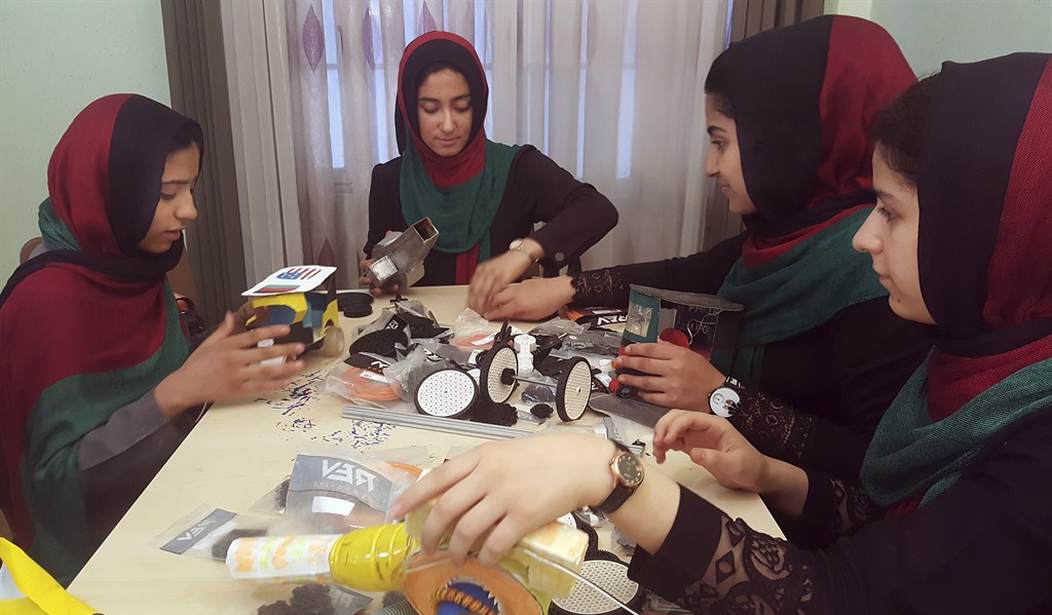Welcome to today’s political Rorschach test. Does Donald Trump’s personal intervention to grant entry to the US for a group of Afghan girls to compete in an international robotics competition show his leadership skills and humanity? Or does it demonstrate the onerous impact of Trump’s immigration policies, including his temporary travel “ban” that recently went into effect?
Thank goodness we have social media to sort this out:
President Donald Trump has intervened to allow a group of Afghan girls entry into the U.S. to participate in an international robotics competition next week in Washington, D.C., a senior administration official confirms to ABC News.
The six girls from western Afghanistan’s Herat region had twice been denied visas to enter the country by the U.S. State Department, although the reason was never publicly disclosed. Still, many critics pointed to Trump’s travel ban executive order and his administration’s policies, which some perceive as hostile to some foreigners, for the girls’ denial of entry.
There’s just one problem with the travel-ban criticism — Afghanistan isn’t one of the six countries to which it applies. The countries impacted by the travel ban are Iran, Syria, Libya, Somalia, Sudan, and Yemen. All but Iran are failed states with significant terrorist activity, and Iran is included as a state sponsor of terror networks, notably Hezbollah. One could also describe Afghanistan as a failed state with significant terror activity, but the government in Kabul cooperates on identifying travelers, and is nominally allied with the US. In any case the travel ban doesn’t apply to visa applicants there, so it wasn’t the travel ban that created the problem.
So far, no one’s quite sure what the issue was. It was significant enough for the State Department to reject their applications at least twice, Politico reports, despite their courageous journey to Kabul to pursue their dreams of competing in the event. Given that the Trump administration has barely begun to fill policy slots at Foggy Bottom, the rejections are more likely based on longer-standing policies. Politico’s Nahal Toosi speculates that the issue may have been a pattern of overstays by previous visa applicants:
The State Department dismissed the girls’ visa requests at least twice, according to media reports, though, citing privacy laws, it did not spell out its reasons. One common reason Afghans are rejected for U.S. entry is the concern that they will overstay their visas and refuse to go back home.
The president became aware of the case and asked officials at the National Security Council to see what they could do. After those officials talked to counterparts at various agencies, the Department of Homeland Security agreed to allow the girls in on a system known as “parole,” which will allow them to stay in the United States for 10 days, though technically not on visas. The parole authority is used in exceptional circumstances, senior administration officials told POLITICO.
In this case, it was determined there was a significant public benefit to letting the girls in, the officials said.
If “parole” sounds familiar, it should. That was precisely the mechanism used to allow Natalia Veselnitskaya into the US, who then apparently overstayed her entry and began lobbying in Washington DC for Russia. This case looks like a worthier cause, but it’s still worth pointing out that the issue with overstays isn’t tied to visas, but the lack of proper follow-up on entries regardless of the mechanism.
Kudos to the administration for taking action to get the just result, and congratulations to the young women competing in the robotics event. Regardless of all the other distractions, that’s the real story here.








Join the conversation as a VIP Member